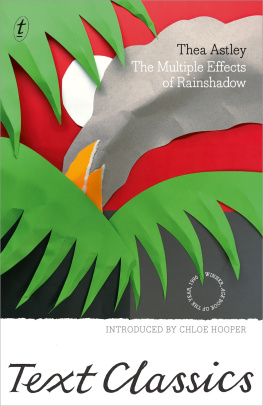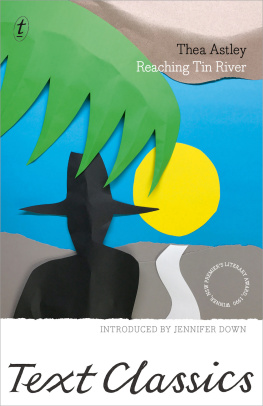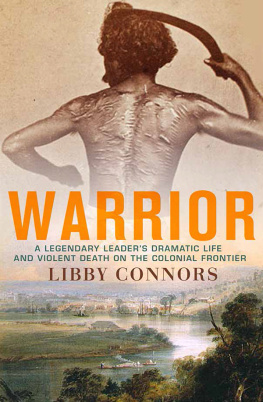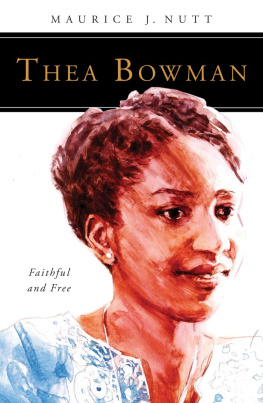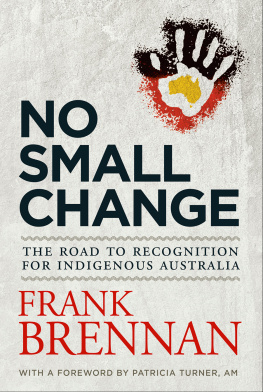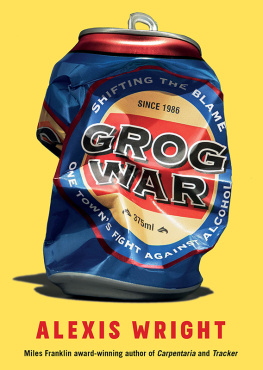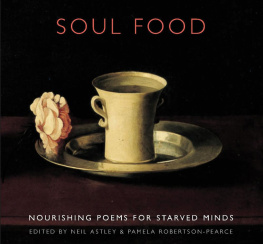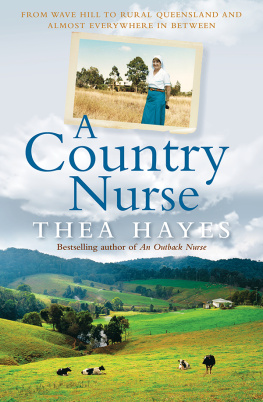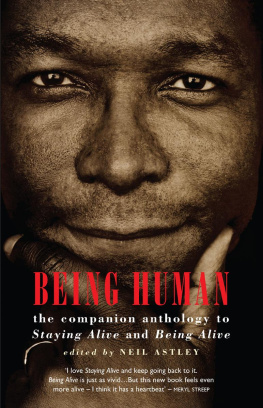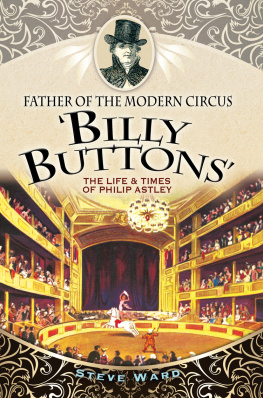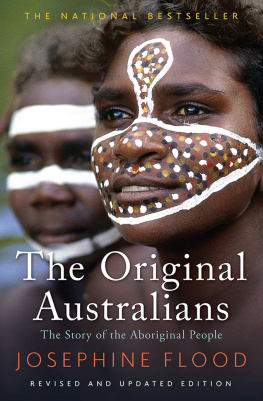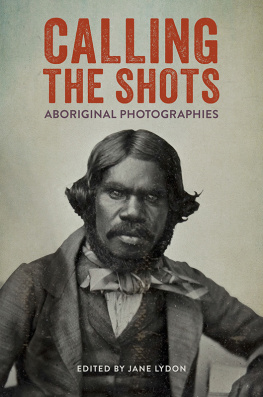THEA BEATRICE MAY ASTLEY was born in Brisbane in 1925. She attended All Hallows, a Catholic school in Fortitude Valley, before studying arts at the University of Queensland.
Astley trained to be a teacher and, on marrying Jack Gregson in 1948, moved to Sydney and worked in a number of schools. The pair had a son, Ed.
In 1958 Astleys first novel, Girl with a Monkey, was published. Over the next four decades she published a work of fiction every few years. Her novels and short stories are distinguished by vivid imagery and metaphor; a complex, ironic style; and a desire to highlight oppression and social injustice.
Astley won the Miles Franklin Literary Award for The Well Dressed Explorer (1962), her third novel. Many notable books followed, among them the groundbreaking A Kindness Cup (1974), which addressed frontier massacres of Indigenous Australians, and Its Raining in Mango (1987).
In the late 1960s Astley took up a position at Macquarie University, where she worked until 1980, when she began to write full-time. She and her husband moved to North Queensland, returning to New South Wales later that decade.
Astley won the 1989 Patrick White Award and became an Officer of the Order of Australia in 1992. Her last novel was Drylands (1999), her fourth Miles Franklin winner and first since 1972.
Famed for her lifelong sharp wit, Thea Astley died in 2004, the year after her husband died. She is considered to be one of the most distinctive and influential Australian novelists of the twentieth century.
There are distant shouts, rifle shots, the pounding of feet across the bridge, the sound of running. A womans scream carves the night then bubbles away.
In 1930 the superintendent of a mission on a Queensland island, driven mad by his wifes death, goes on a murderous rampage. Fearing for their lives, the other whites arm a young Indigenous man and order him to shoot Uncle Boss dead. The Multiple Effects of Rainshadow traces the lead-up to this bloody showdown and the repercussions down the yearsfor the colonial overseers and for Aboriginal people on the island.
Passion, brilliance and originality. Sydney Morning Herald
first novel, A Childs Book of True Crime, was shortlisted for the Orange Prize. The Tall Man, her account of the death in custody of Cameron Doomadgee, won many literary awards. Her second novel, The Engagement, was published in 2014 and her non-fiction work The Arsonist will be published in 2018.
Girl with a Monkey
A Descant for Gossips
The Well Dressed Explorer
The Slow Natives
A Boat Load of Home Folk
The Acolyte
A Kindness Cup
Hunting the Wild Pineapple and Other Related Stories
An Item from the Late News
Beachmasters
Its Raining in Mango
Reaching Tin River
Vanishing Points
Coda
Drylands
Collected Stories
CONTENTS
textclassics.com.au
textpublishing.com.au
The Text Publishing Company
Swann House
22 William Street
Melbourne Victoria 3000
Australia
Copyright estate of Thea Astley, 1996
Introduction copyright Chloe Hooper, 2018
The moral rights of the authors have been asserted.
All rights reserved. Without limiting the rights under copyright above, no part of this publication shall be reproduced, stored in or introduced into a retrieval system, or transmitted in any form or by any means (electronic, mechanical, photocopying, recording or otherwise), without the prior permission of both the copyright owner and the publisher of this book.
Every effort has been made to trace copyright holders and obtain their permission for the use of copyright material. The publisher apologises for any errors or omissions and would be grateful if notified of any corrections that should be incorporated in future reprints or editions of this book.
First published by Penguin Books Australia, 1996
This edition published by The Text Publishing Company, 2018
A substantially different earlier version of the introduction was published in theMonthly magazine, 2008
Cover design by W. H. Chong
Page design by Text
Typeset by Midland
ISBN: 9781925603569 (paperback)
ISBN: 9781925626605 (ebook)
WHEN I TRAVELLED to North Queenslands Palm Island, in 2005, to attend an inquest into a death in custody, I was venturing into Manbarra country and a story Thea Astley could have written. If you happened upon this island, shed declared of Doebin, Palms fictional equivalent, your eyes gummed to this mountain humped with riffled reef waters, you would be enchanted by that necklace of white beaches, foliage growing to the seapalms waving casual welcome feathers. Astley had a fascination with the fecundity and the rot of tropical life, with small communities where agoraphobia and claustrophobia commingle, and the spiritual decay that is a side effect of colonisation. She wrote of hard cases, misfits living on a cyclonic edge. And Senior Sergeant Christopher Hurleythe very tall, very broad, some said charismatic policeman suspected of killing Cameron Doomadgee in the local police stationwas a perfect Astley character.
But of course, the writer had already explored parallel events. Her 1996 novel, The Multiple Effects of Rainshadow, is based on an incident that took place on the Palm Island Mission sixty-five years earlier. In 1930, the islands superintendent, Robert Curry, caught in the grip of psychosis, went on a murderous rampage. Curry, a Kurtz-like figure known to the Palm Islanders as Boss or Uncle Boss, was an ex-army man: a veteran of the Great War who oversaw the settlement of the island throughout the 1920s, establishing it as a kind of open-air jail for Aborigines who had proved troublesome on Queenslands regular reserves.
The Aboriginal detainees cleared the land and erected buildings without even a horse or dray, and when eventually a dray camewith no horseUncle Boss Curry ordered the men to haul it themselves. He introduced gardening competitions, European dancingso as to discourage traditional ceremonial dancesand a jazz band; those who failed to attend band practice could find themselves locked up.
As one of the islands officials noted, Mr Curry practically regarded this settlement as a child of his brain. When rumours spread on the mainland that he was flogging young Aboriginal women, Curry suspected his rivals were trying to undermine him. Not that the allegations were false: without these whippings, he told his superiors, his authoritywould have been weakened. Hed turned tyrannical in a place he described as akin to living on the rim of a volcano.
Curry hated the Palm Island doctor, an enmity that intensified when Currys wife died in childbirth. Drinking heavily in his grief, and dosed with novocaine for neuralgia, the superintendent donned a long red bathing suit and a bullet belt, and, with a gun in each hand, went berserk. First, he dynamited his own house with his drugged children inside, then he went out to shoot the doctor and burn down the settlement buildings: to kill the child of his brain. As the buildings burned, white staff gave a gun to a young Aboriginal man, Peter Prior, and deputised him to shoot Curryand then they hid.
In The Multiple Effects of Rainshadow, Curry becomes Captain Brodie; Peter Prior is Manny Cooktown; and Palm Island, Doebin Island.
Time! rapped out the superintendent, remembering the Somme. He stood ridiculously to attention on the empty beach, presenting arms in his long, shapeless bathing suit. He blinked and foundthe beach empty except for the dot-pictures painted by rain

